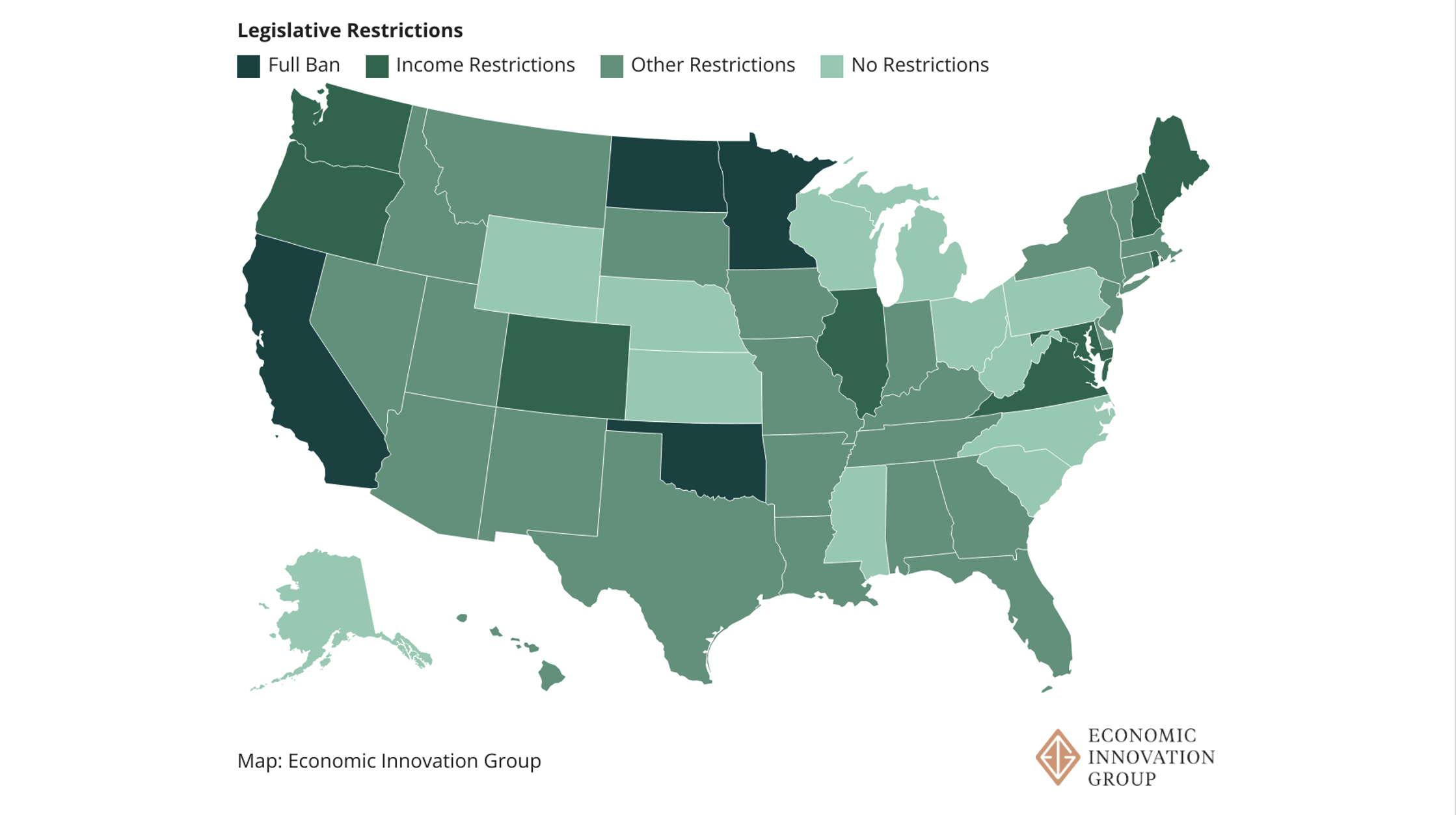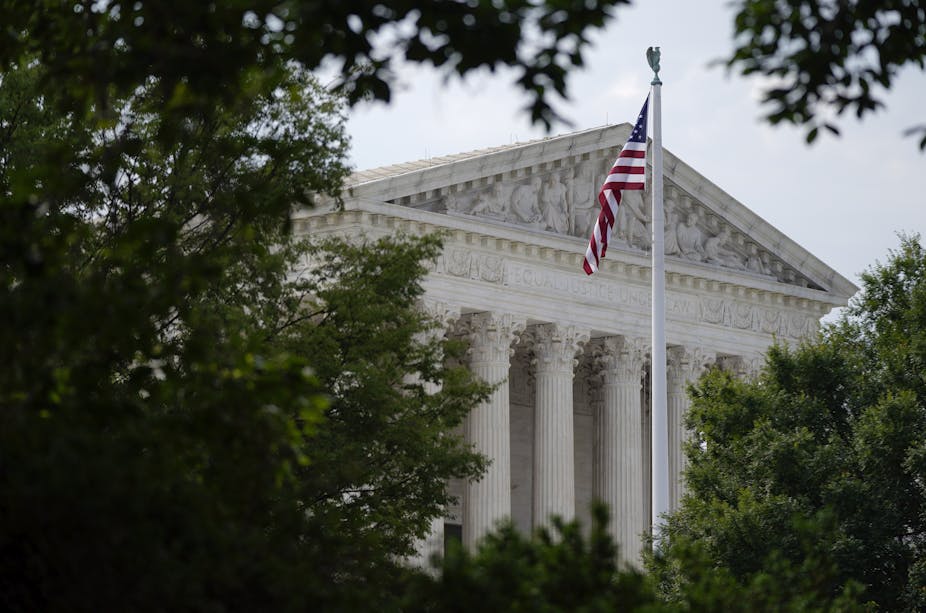Through Which Clause Did State Governments Become Bound By The Bill Of Rights: The Incorporation Doctrine Explained
The Fourteenth Amendment’s Due Process Clause binds state governments to the Bill of Rights. This clause extends constitutional protections to state actions.
Before the Fourteenth Amendment, the Bill of Rights applied only to the federal government. States had their own laws and constitutions. The Fourteenth Amendment, ratified in 1868, changed this. It introduced the Due Process Clause, ensuring no state could deprive any person of life, liberty, or property without due process of law.
This clause became a powerful tool. It gradually made many Bill of Rights protections applicable at the state level. Understanding this transformation is crucial. It shows how fundamental rights were safeguarded across the country.

Credit: www.brookings.edu
The Bill Of Rights
The Bill of Rights is the first ten amendments to the United States Constitution. It ensures essential rights and liberties to individuals. The Bill of Rights was added to the Constitution to protect citizens from government power.
Historical Background
The Bill of Rights was created in 1791. The Founding Fathers wrote it to address the concerns of Anti-Federalists. They feared a strong central government might abuse power. The Bill of Rights aimed to ensure personal freedoms and limit government control.
| Amendment | Right |
|---|---|
| 1st Amendment | Freedom of Speech, Religion, and Press |
| 2nd Amendment | Right to Bear Arms |
| 4th Amendment | Protection against Unreasonable Searches |
Purpose And Significance
The Bill of Rights serves several key purposes. It protects individual freedoms. It prevents government overreach. It also assures citizens that their rights are inviolable.
Today, the Bill of Rights is still significant. It influences many legal decisions. It is a cornerstone of American democracy. It helps ensure that the government respects citizens’ rights.
State Governments And The Bill Of Rights
The Bill of Rights originally applied only to the federal government. The states had their own laws and regulations. They weren’t required to follow the Bill of Rights. This created a divide in how rights were protected across the country.
Initial Exclusion
At first, the Bill of Rights did not bind state governments. The framers of the Constitution aimed to limit federal power. They did not intend to restrict state laws. This meant states could make laws that might infringe on individual rights.
Early Legal Interpretations
In the 19th century, the Supreme Court confirmed this exclusion. The case of Barron v. Baltimore in 1833 is a key example. The Court ruled that the Bill of Rights applied only to the federal government. States were not bound by these amendments.
This interpretation began to change in the 20th century. The Fourteenth Amendment played a crucial role. It introduced the idea of “due process” and “equal protection.” This amendment paved the way for incorporating the Bill of Rights to the states.
The Fourteenth Amendment
The Fourteenth Amendment to the United States Constitution is a pivotal element in American history. It played a crucial role in shaping the legal landscape of civil rights. This amendment ensured that state governments were bound by the Bill of Rights.
Introduction And Ratification
The Fourteenth Amendment was ratified on July 9, 1868. It was part of the Reconstruction Amendments. These amendments aimed to rebuild the nation after the Civil War. The amendment sought to provide equal protection under the law for all citizens. This was a significant step towards civil rights in the United States.
The process of ratification was not easy. It required the approval of three-fourths of the states. This was a challenging task in the post-war era. Despite the difficulties, the amendment was successfully ratified. It became a cornerstone of American constitutional law.
Key Provisions
The Fourteenth Amendment consists of several key provisions. These provisions have had a lasting impact on American society.
- Citizenship Clause: This clause granted citizenship to all persons born or naturalized in the United States. It was a significant step towards equality.
- Due Process Clause: This clause prohibited state governments from depriving any person of life, liberty, or property without due process of law. It ensured fair treatment under the law.
- Equal Protection Clause: This clause required states to provide equal protection under the law to all people within their jurisdictions. It was a critical element in the fight against discrimination.
These provisions collectively ensured that state governments adhered to the principles of the Bill of Rights. They provided a legal framework for protecting individual rights against state actions.
The Fourteenth Amendment’s impact cannot be overstated. It laid the foundation for modern civil rights protections. It continues to influence legal interpretations and decisions in the United States today.

Credit: eig.org
The Incorporation Doctrine
The Incorporation Doctrine is a legal concept that binds state governments to the Bill of Rights. It ensures that individual rights are protected against state actions. This doctrine has evolved through various judicial interpretations, making it a cornerstone of American constitutional law.
Definition And Meaning
The Incorporation Doctrine means the application of the Bill of Rights to the states. Initially, the Bill of Rights applied only to the federal government. The Fourteenth Amendment changed this by including the Due Process Clause. This clause has been interpreted to mean that most of the Bill of Rights applies to state governments. This process is called “selective incorporation.”
Selective incorporation means that the Supreme Court decides which rights are fundamental. The Court then applies these rights to the states on a case-by-case basis. This ensures that states cannot violate fundamental freedoms guaranteed by the Bill of Rights.
Judicial Interpretation
The Supreme Court plays a key role in the incorporation process. Through various landmark cases, the Court has interpreted the Due Process Clause to include most of the Bill of Rights.
- Gitlow v. New York (1925): This case was one of the first to apply free speech rights to the states.
- Mapp v. Ohio (1961): This ruling applied the Fourth Amendment’s protection against unreasonable searches and seizures to the states.
- Gideon v. Wainwright (1963): This case ensured the right to legal counsel in state courts, under the Sixth Amendment.
These cases, among others, have shaped the Incorporation Doctrine. They have extended the protections of the Bill of Rights to state actions. This judicial interpretation ensures a uniform standard of fundamental rights across the United States.
Selective Incorporation
Selective incorporation is a legal doctrine. It ensures state governments respect the Bill of Rights. This process uses the Fourteenth Amendment. It applies certain federal rights to the states. Through selective incorporation, citizens gain protection from state laws infringing on their rights.
Major Court Cases
Several court cases have shaped selective incorporation. One key case is Gitlow v. New York (1925). The Supreme Court ruled that free speech applies to the states. Another important case is Mapp v. Ohio (1961). This case extended the exclusionary rule to the states. The exclusionary rule prevents illegally obtained evidence in court.
In Gideon v. Wainwright (1963), the Court decided that states must provide legal counsel in criminal cases. This strengthened the Sixth Amendment right to a fair trial. Lastly, Miranda v. Arizona (1966) required states to inform suspects of their rights.
Impact On State Laws
Selective incorporation has transformed state laws. States must align their laws with the Bill of Rights. This ensures citizens receive the same protections nationwide. Before selective incorporation, states had more freedom to create their own laws. Now, state laws cannot infringe on fundamental rights.
For example, states must respect free speech, even if it conflicts with local laws. They must also provide fair trials and protect against unreasonable searches. This creates a more uniform legal system across the country. States must constantly review and adjust their laws to comply with federal standards.
Total Incorporation
The concept of Total Incorporation is pivotal in constitutional law. It refers to the idea that the Fourteenth Amendment makes the entire Bill of Rights applicable to the states. This means state governments must adhere to the same standards as the federal government regarding individual rights.
Arguments For And Against
Supporters of Total Incorporation argue it ensures uniform protection of rights. They believe it prevents states from infringing on freedoms guaranteed by the Bill of Rights. This creates a consistent legal landscape across the country.
Opponents argue that Total Incorporation undermines state sovereignty. They believe states should have the flexibility to address local concerns. They also worry about the federal government overstepping its bounds.
Key Legal Debates
Legal scholars often debate the merits of Total Incorporation. Some argue it is essential for protecting individual rights. Others believe selective incorporation is better, where only fundamental rights are applied to states.
Supreme Court decisions have influenced this debate. Early cases favored selective incorporation. More recent decisions have leaned towards a broader application. This ongoing debate shapes how rights are protected in the United States.
Significant Supreme Court Rulings
The Bill of Rights originally applied only to the federal government. Over time, the Supreme Court has extended these rights to state governments. This process is known as incorporation. The Fourteenth Amendment’s Due Process Clause played a crucial role in this process.
Significant Supreme Court rulings have shaped the application of the Bill of Rights to the states. These landmark cases highlight the evolving legal precedents that protect individual rights.
Landmark Cases
Several landmark cases have been instrumental in this process. One of the earliest cases was Gitlow v. New York in 1925. The Court ruled that states must respect freedom of speech. This case marked the beginning of the incorporation doctrine.
Another crucial case was Mapp v. Ohio in 1961. Here, the Supreme Court extended the Fourth Amendment’s protection against unreasonable searches and seizures to the states. This case emphasized the importance of due process.
In 1963, the ruling in Gideon v. Wainwright ensured that states must provide legal counsel to defendants who cannot afford one. This decision underscored the Sixth Amendment’s right to a fair trial.
Evolving Legal Precedents
Over the years, the Supreme Court has continued to interpret the Bill of Rights in new ways. In Miranda v. Arizona (1966), the Court required that suspects be informed of their rights before questioning. This decision reinforced the Fifth Amendment’s protection against self-incrimination.
The incorporation of the Bill of Rights has evolved through various rulings. For instance, the case of McDonald v. City of Chicago (2010) extended Second Amendment rights to the states. This decision emphasized the importance of individual rights in the context of state laws.
These evolving legal precedents highlight the dynamic nature of constitutional law. Each ruling builds upon previous decisions, ensuring that individual rights are protected at both the federal and state levels.

Credit: theconversation.com
Modern Implications
The Bill of Rights, originally only applicable to the federal government, now also binds state governments. This change occurred through the Fourteenth Amendment. The incorporation doctrine has played a crucial role in this transformation. Understanding the modern implications of this shift is important.
Current Legal Landscape
The current legal landscape shows how the Bill of Rights protects citizens at all levels of government. Courts use the Fourteenth Amendment to apply most of the Bill of Rights to the states. This ensures that state laws do not infringe on basic rights like free speech and fair trials.
| Right | Amendment | Applicable to States |
|---|---|---|
| Freedom of Speech | First Amendment | Yes |
| Right to a Fair Trial | Sixth Amendment | Yes |
| Protection Against Unreasonable Searches | Fourth Amendment | Yes |
Recent court cases illustrate this application. For example, the Supreme Court ruled that states cannot violate the Second Amendment right to bear arms. This ensures uniform protection across the country.
Future Directions
The future may see further expansions or clarifications of these rights. Courts might re-examine how certain rights are applied to states. Emerging issues like digital privacy could lead to new interpretations.
- Digital Privacy Rights
- Freedom of Speech on Social Media
- Equal Protection in Modern Contexts
Understanding these developments helps citizens stay informed. This awareness empowers them to protect their rights effectively. The incorporation doctrine will continue to shape the legal landscape.
Frequently Asked Questions
What Is The Incorporation Doctrine?
The Incorporation Doctrine is a constitutional principle. It ensures state governments adhere to the Bill of Rights. This happens through the Fourteenth Amendment.
Which Amendment Binds States To The Bill Of Rights?
The Fourteenth Amendment binds states to the Bill of Rights. It ensures citizens’ rights are protected from state infringement.
How Does The Fourteenth Amendment Apply To States?
The Fourteenth Amendment applies to states through the Due Process Clause. It mandates states to uphold individual rights guaranteed by the Bill of Rights.
Why Is The Due Process Clause Important?
The Due Process Clause is crucial for protecting individual liberties. It prevents states from depriving any person of life, liberty, or property without legal procedures.
Conclusion
Understanding the Fourteenth Amendment’s role is essential. It bridges the Bill of Rights to state governments. This clause ensures individual freedoms are protected nationwide. States must follow these federal protections. Knowing this empowers citizens to defend their rights. Stay informed, stay protected.



